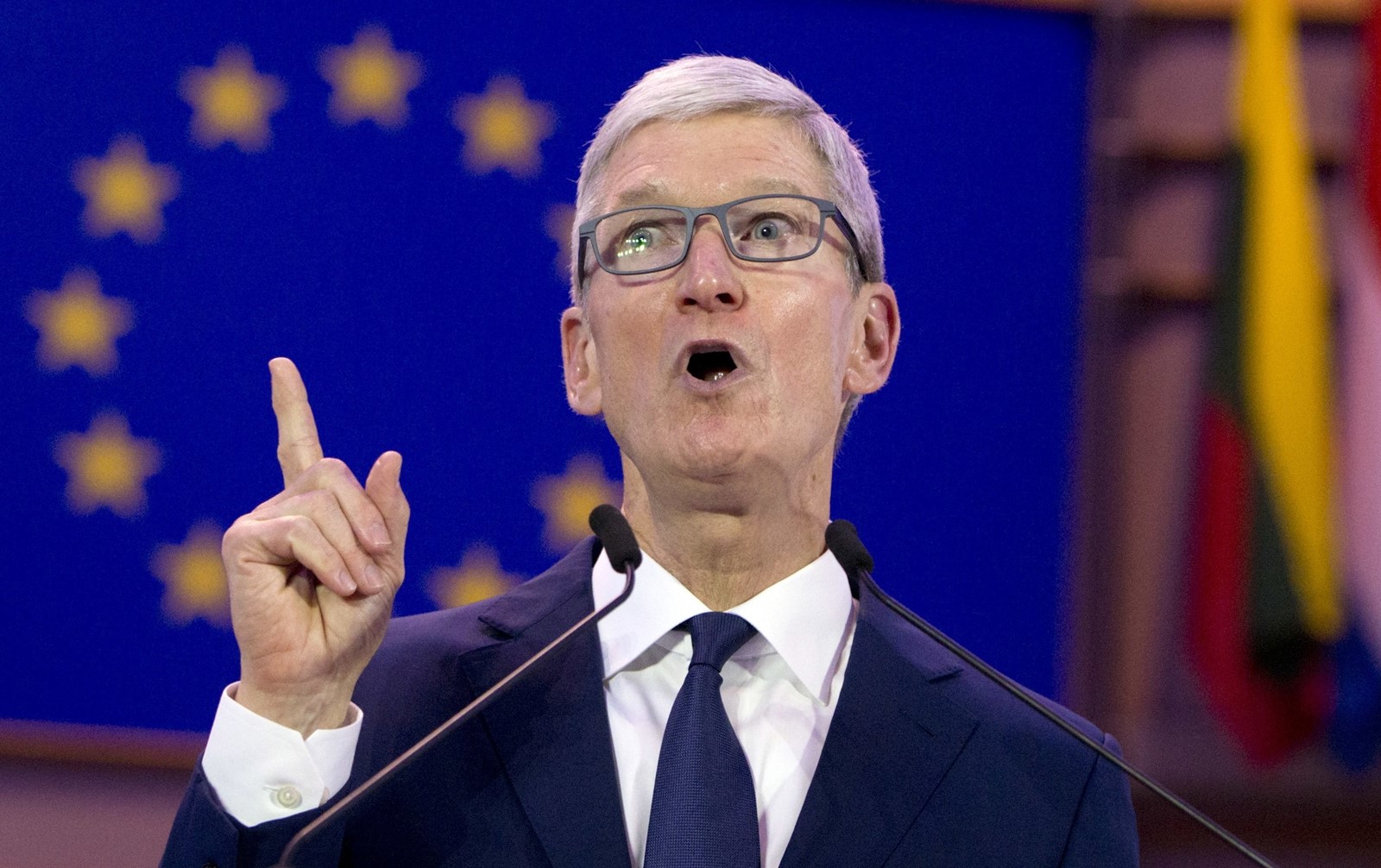Apple CEO warns of data ‘weaponized’ against users

Speaking at an international conference on data privacy, Apple CEO Tim Cook applauded European Union authorities for bringing in a strict new data privacy law in May and said the iPhone maker supports a U.S. federal privacy law.
Cook’s speech, along with video comments from Google and Facebook top bosses, in the European Union’s home base in Brussels, underscores how the U.S. tech giants are jostling to curry favor in the region as regulators tighten their scrutiny.
Data protection has become a major political issue worldwide, and European regulators have led the charge in setting new rules for the big internet companies. The EU’s new General Data Protection Regulation, or GDPR, requires companies to change the way they do business in the region, and a number of headline-grabbing data breaches have raised public awareness of the issue.
“In many jurisdictions, regulators are asking tough questions. It is time for rest of the world, including my home country, to follow your lead,” Cook said.
“We at Apple are in full support of a comprehensive federal privacy law in the United States,” he said, to applause from hundreds of privacy officials from more than 70 countries.
In the U.S., California is moving to put in regulations similar to the EU’s strict rules by 2020, and other states are mulling more aggressive laws. That’s rattled the big tech companies, which are pushing for a federal law that would treat them more leniently.
Cook warned that technology’s promise to drive breakthroughs that benefit humanity is at risk of being overshadowed by the harm it can cause by deepening division and spreading false information. He said the trade in personal information “has exploded into a data industrial complex.”
“Our own information, from the everyday to the deeply personal, is being weaponized against us with military efficiency,” he said. Scraps of personal data are collected for digital profiles that let businesses know users better than they know themselves and allow companies to offer users “increasingly extreme content” that hardens their convictions, Cook said.
“This is surveillance. And these stockpiles of personal data serve only to enrich the companies that collect them,” he said. “This should make us very uncomfortable.”
Cook’s appearance was one-up on his tech rivals and showed off his company’s credentials in data privacy, which has become a weak point for both Facebook and Google. That is facilitated also by the fact that Apple makes most of its money by selling hardware such as iPhones instead of ads based on user data.
The EU’s GDPR requires companies to justify the collection and use of personal data gleaned from phones, apps and visited websites. They must also give EU users the ability to access and delete data, and to object to data use.


 PREVIOUS ARTICLE
PREVIOUS ARTICLE
